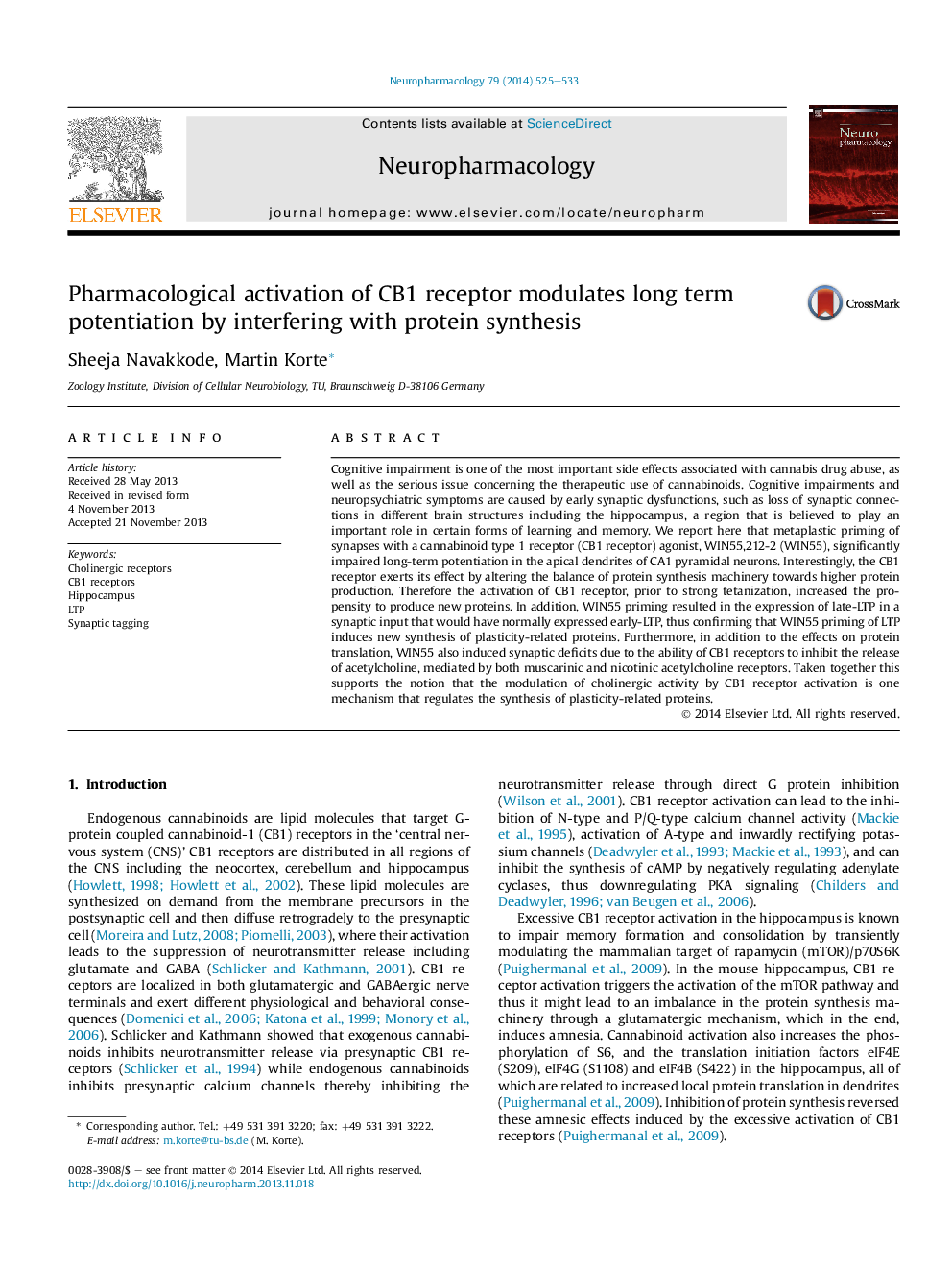| Article ID | Journal | Published Year | Pages | File Type |
|---|---|---|---|---|
| 5814666 | Neuropharmacology | 2014 | 9 Pages |
Abstract
Cognitive impairment is one of the most important side effects associated with cannabis drug abuse, as well as the serious issue concerning the therapeutic use of cannabinoids. Cognitive impairments and neuropsychiatric symptoms are caused by early synaptic dysfunctions, such as loss of synaptic connections in different brain structures including the hippocampus, a region that is believed to play an important role in certain forms of learning and memory. We report here that metaplastic priming of synapses with a cannabinoid type 1 receptor (CB1 receptor) agonist, WIN55,212-2 (WIN55), significantly impaired long-term potentiation in the apical dendrites of CA1 pyramidal neurons. Interestingly, the CB1 receptor exerts its effect by altering the balance of protein synthesis machinery towards higher protein production. Therefore the activation of CB1 receptor, prior to strong tetanization, increased the propensity to produce new proteins. In addition, WIN55 priming resulted in the expression of late-LTP in a synaptic input that would have normally expressed early-LTP, thus confirming that WIN55 priming of LTP induces new synthesis of plasticity-related proteins. Furthermore, in addition to the effects on protein translation, WIN55 also induced synaptic deficits due to the ability of CB1 receptors to inhibit the release of acetylcholine, mediated by both muscarinic and nicotinic acetylcholine receptors. Taken together this supports the notion that the modulation of cholinergic activity by CB1 receptor activation is one mechanism that regulates the synthesis of plasticity-related proteins.
Related Topics
Life Sciences
Neuroscience
Behavioral Neuroscience
Authors
Sheeja Navakkode, Martin Korte,
